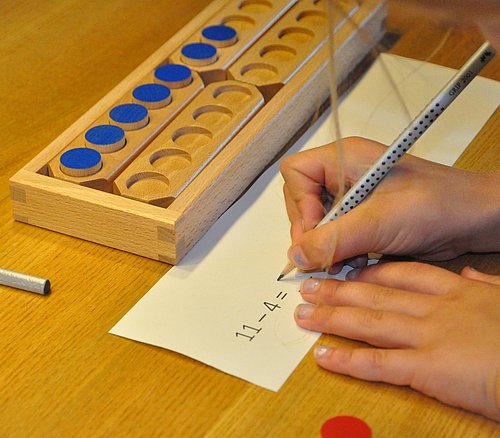In addition to calculators and digital whiteboards, other digital media such as explanatory videos or tablets with apps have found their way into maths lessons at all school levels since the start of the pandemic at the latest. The use of digital media and the digital design of subject-related learning is therefore an essential cross-cutting task in teacher training. The Fetzer research group is dedicated to the topic of digitalisation at the research and teaching level in various sub-projects.
Language plays a crucial role in learning maths. All children benefit from language-sensitive maths lessons - but those with language difficulties in particular. In many cases, this applies to children with a migration background. To date, research has largely ignored a perspective on multilingualism as a resource and as a special potential for mathematical learning. We are addressing this research desideratum in various projects in the working group.
Learning maths without dealing with things and objects is almost inconceivable. But what role do objects play in mathematical teaching and learning processes? With regard to the development of mathematics didactic learning theories, I take a sociological look at objects, drawing on Latour (2005), and consider them as actors in classroom interactions. Within the framework of a sociology of objects, I am interested in theoretical and methodological questions that can be attributed to basic research in mathematics didactics. A particular focus here is on the empirical reconstruction of participation structures and the identification of specific interaction patterns in analogue and digital settings. This enables a better understanding of the extent to which we can "calculate with objects".

Sociology of Objects